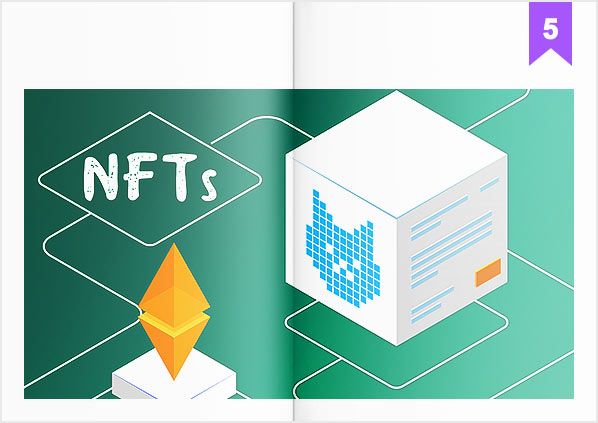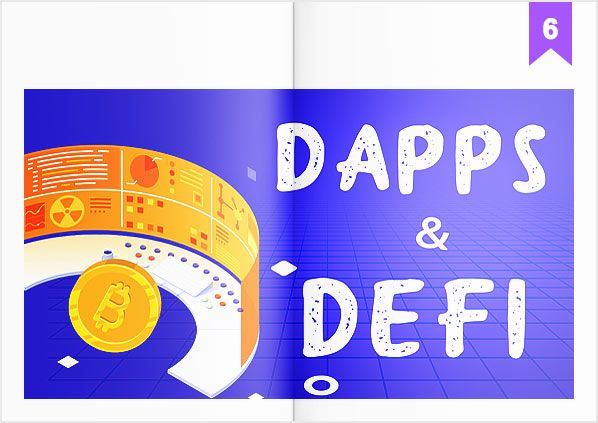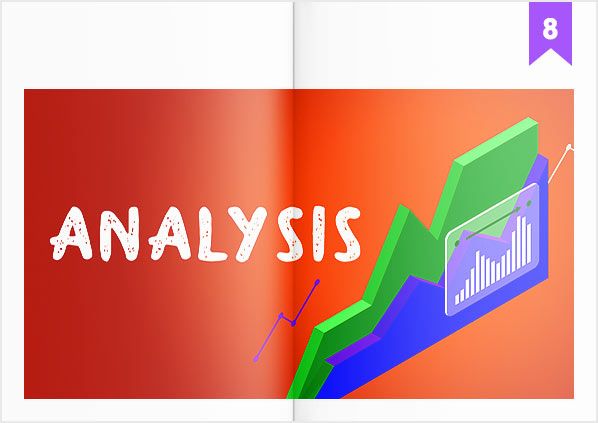Proof-of-Stake (PoS)</strong></a> blockchain network. As part of the PoS consensus mechanism, validators are responsible for verifying new <a href=https://www.bitdegree.org/"/crypto/learn/crypto-terms/what-is-block/">blocks and adding them to the chain to earn <a href=https://www.bitdegree.org/"/crypto/learn/crypto-terms/what-is-block-reward/">rewards./nMost blockchains are designed to be decentralized. This means that there is <strong>no single centralized authority</strong> that the blockchain answers to. Instead, all processes are handled by a network of decentralized <a href=https://www.bitdegree.org/"/crypto/learn/crypto-terms/what-is-node/">nodes scattered across the globe. The nodes contain data that needs to be validated by the network.</p>\n<p>There are numerous validation methods, known as <a href=https://www.bitdegree.org/"/crypto/learn/crypto-terms/what-is-consensus/">consensus mechanisms</strong></a>, throughout the different blockchain systems. However, the two most popular methods are <a href=https://www.bitdegree.org/"/crypto/learn/crypto-terms/what-is-proof-of-work-pow/">Proof-of-Work (PoW)</strong></a> and <strong>Proof-of-Stake (PoS)</strong>. Consensus mechanisms are used to verify incoming transactions to ensure that <a href=https://www.bitdegree.org/"/crypto/learn/crypto-terms/what-is-double-spending/">double-spending doesn’t occur, and the data is accurate.</p>\n<p>The validators have one of the key roles in the blockchain network. They confirm the authenticity and accuracy of the transaction records. If the information they analyze is correct, the transaction is deemed completed, and its data is added to the blockchain.</p>\n<h2>Proof-of-Work vs. Proof-of-Stake</h2>\n<p>The Proof-of-Work consensus mechanism is the process of verifying cryptocurrency transactions via <a href=https://www.bitdegree.org/"/crypto/learn/crypto-terms/what-is-mining/">mining. <a href=https://www.bitdegree.org/"https://www.bitdegree.org/crypto/buy-bitcoin-btc/">Bitcoin (BTC)</strong></a>, the first cryptocurrency in the world, utilizes the PoW mechanism to create new blocks. Miners use special computers to solve complicated mathematical problems known as <a href=https://www.bitdegree.org/"/crypto/learn/crypto-terms/what-is-hash/">hashes.
/nIf a miner successfully solves a hash, the <strong>information is forwarded</strong> to the rest of the mining network to confirm it. If the information is deemed correct, a new block is created and added to the blockchain, and the miner <strong>receives cryptocurrency rewards</strong>. Miners essentially play the role of validators on PoW systems.</p>\n<p>However, the PoW mechanism is highly flawed as it requires the miners to possess specific hardware to work optimally. Furthermore, the energy consumption required to solve hashes is really high, leading to increased electricity bills and heat emissions.</p>\n<p>The <strong>Proof-of-Stake consensus algorithm</strong> does not require validators to have specific hardware. Instead, the participants stake their coins in a <a href=https://www.bitdegree.org/"/crypto/learn/crypto-terms/what-is-staking-pool/">shared pool</strong></a>. The validators analyze the blocks based on certain rules set by the blockchain. They receive rewards in the form of transaction or network fees for verified transactions.</p>\n<p>While the Proof-of-Work mechanism is more widely spread, newer blockchains pot for the <strong>safer and more efficient Proof-of-Stake</strong> mechanism. The <a href=https://www.bitdegree.org/"https://www.bitdegree.org/crypto/buy-ethereum-eth/">Ethereum (ETH)</strong></a> blockchain aims to switch from the PoW system to PoS in the near future.</p>","level":"medium","meta_title":"What is Validator? Definition & Meaning | Crypto Wiki","meta_description":"Validator meaning: Validator - a member of a Proof-of-Stake (PoS) blockchain network, responsible for validating new blocks.","meta_keywords":null,"language":"en","created_at":"2022-04-11T08:01:57.000000Z","updated_at":"2022-05-13T14:32:24.000000Z","preview_url":"https://www.bitdegree.org/crypto/learn/crypto-terms/what-is-validator"},"prevSection":{"id":828,"original_id":null,"author_id":40,"translator_id":null,"title":"Who is Vitalik Buterin?","slug":"who-is-vitalik-buterin","section":"V","keyword":"Vitalik Buterin","status":"published","definition":"one of Ethereum’s co-founders.","content":"<p><strong>Vitalik Buterin</strong> is a Russian-born Canadian programmer and writer best known as one of <a href=https://www.bitdegree.org/"https://www.bitdegree.org/crypto/buy-ethereum-eth/">Ethereum's co-founders. In addition to co-founding the second-largest <a href=https://www.bitdegree.org/"/crypto/learn/crypto-terms/what-is-cryptocurrency/">cryptocurrency by market size, Vitalik Buterin is the co-founder of Bitcoin Magazine.</p>\n<p>He is currently <strong>the leader of Ethereum's research team</strong> and a philanthropist, contributing millions of ether to numerous organizations, organizations, and foundations. In addition, in 2020, he invested $1.4 in ether to start producing the new Ethereum 2.0 network.</p>\n<p>Going back in time, Buterin was born in 1994, in Russia, however, after some time he emigrated to Canada. His own father was a computer scientist, so he learned about <a href=https://www.bitdegree.org/"https://www.bitdegree.org/crypto/buy-bitcoin-btc/">Bitcoin when he was 17 years old.</p>\n<p>Vitalik began his career as <strong>a writer for Bitcoin Weekly in 2011</strong> and received five Bitcoin for one piece. However, the website was taken down. When that happened, Mihai Alise contacted Buterin with the intention of starting a new paper, which eventually resulted in the creation of the Bitcoin Magazine.</p>\n<p>Buterin was still a student at the University of Waterloo, where he was also employed as <strong>an assistant to cryptographer Ian Goldberg</strong> at the time. Furthermore, as his engagement in the crypto world grew online and at conventions, Buterin was encouraged to meet others who wish to establish a Bitcoin alternative that extends its possibilities with a more comprehensive scripting language.</p>\n<p>Following that, in his <a href=https://www.bitdegree.org/"/crypto/learn/crypto-terms/what-is-whitepaper/">whitepaper that was released at the end of 2013, Buterin presented this option as a decentralized mining network and software development platform that permits the emergence of new coins and apps creating a common blockchain dubbed Ethereum.</p>\n<p>The next year, <strong>he was given a $1000,00 award from the Thiel Fellowship</strong> for innovators under 20 to continue engaging with their inventions. Thus, Buterin left university and <span style=\"font-family: -apple-system, BlinkMacSystemFont, 'Segoe UI', Roboto, Oxygen, Ubuntu, Cantarell, 'Open Sans', 'Helvetica Neue', sans-serif;\">shifted his focus entirely to Ethereum. He made it his full-time job along with a team of Anthony Di Iorio, Joe Lubin, Gavin Wood, and Charles Hoskinson.</span></p>\n<p>The team revealed the project in 2014 and the version that was publicly accessible came out in 2015. So, Vitalik Buterin and his team created Ethereum to be the world’s second-largest cryptocurrency by market capitalization.</p>\n<p>The primary goal of Ethereum was to <strong>broaden the use cases of blockchain technology</strong> past transactions and asset storage. Thus, Ethereum's development has been committed to improving <a href=https://www.bitdegree.org/"/crypto/learn/crypto-terms/what-is-smart-contract/">smart contracts</strong></a> and introducing new <a href=https://www.bitdegree.org/"/crypto/learn/crypto-terms/what-are-decentralized-applications-dapps/">DApps that provide new financial goods and services.</p>\n<p>Moreover, in addition to all his inventions, Buterin has also taken part in the creation of a whole new tech industry, as well as giving $763,970 worth of ETH to the Machine Intelligence Research Institute and $2.4 million to the SENS Research Foundation. Additionally, Buterin took part as a developer for other open-source projects such as DarkWallet, Bitcoin Python libraries, and the cryptocurrency marketplace Agora.</p>","level":"medium","meta_title":"Who is Vitalik Buterin? Definition & Meaning | Crypto Wiki","meta_description":"Vitalik Buterin meaning: Vitalik Buterin - is one of Ethereum’s co-founders.","meta_keywords":null,"language":"en","created_at":"2022-04-04T12:39:09.000000Z","updated_at":"2022-09-15T14:03:45.000000Z","preview_url":"https://www.bitdegree.org/crypto/learn/crypto-terms/who-is-vitalik-buterin"},"currentChapter":"V","currentSection":"what-is-volatility","chapterTitle":"V","readingLevel":"easy"},"url":"/crypto/learn/crypto-terms/what-is-volatility","version":"cdd198d50cbe5c9c21c9329d7c096ffc"}" class="container-fluid d-flex crypto-book p-0"> Crypto Terms: Letter V
What is Volatility?
Volatility MEANING:
Volatility -
a measurement that describes significant price movements.
Let's find out Volatility meaning, definition in crypto,
what is Volatility,
and all other detailed facts.
In the world of cryptocurrencies, a coin or token is considered to be volatile if its price movement often changes in volume, frequency, and direction. The most popular cryptocurrencies today such as Bitcoin and Ethereum are considered to be very high in volatility.
In most cases, CBOE Volatility Index (VIX) is used to measure the asset’s level of volatility. However, some cryptocurrencies have their own measures for these fluctuations in price. For example, the Bitcoin Volatility Index (BitVol) or the Ethereum Volatility Index (EthVol).
Why are Cryptocurrencies So Volatile?
There are a few elements that come into play that impact the volatility of the cryptocurrency market:
- Geopolitical situations. When geopolitical issues appear, they usually have a strong global impact. As a result, geopolitical news can affect the crypto trading volumes;
- Regulatory news. Reports and announcements regarding regulations have the ability to directly influence the volatility of any cryptocurrency or the entire crypto market overall. An agency that can provide regulatory news is the U.S. Securities and Exchange Commission (SEC).
Additionally, COVID-19 had a great impact on cryptocurrency markets. Buying and selling cryptocurrencies, especially Bitcoin, grew in 2020. So did the price of these cryptocurrencies. One of the reasons why the pandemic had such a strong effect on the crypto sector is because it appeared a lot more secure than cash.
Another factor driving people to specifically BTC instead of other cryptocurrencies is its hard cap of 21 million BTC. Moreover, Bitcoin and other cryptocurrencies could possibly be a safe haven against rising inflation.









